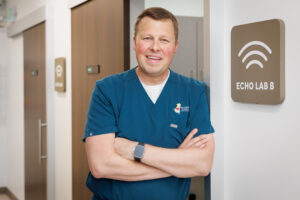Description

Date: Sunday, Feb 23rd, 2025
Time: 8:30 am – 4 pm
Location: Hilton Frontenac, 1335 S. Lindbergh Blvd, St Louis, MO 63131
Free to GSLVMA members, $95 for non-members (staff members welcome at non-member price!)
Dr. Maran is board certified by the American College of Veterinary Internal Medicine (ACVIM) in the specialty of Cardiology.
He earned his Doctorate of Veterinary Medicine from Mississippi State University and completed his small animal medical and surgical internship at The University of Tennessee-Knoxville.
Dr. Maran completed his Residency in Cardiology and Masters degree in pharmacogenomics at Washington State University where he was awarded the Outstanding Resident Research Award by the ACVIM in 2010 and 2011.
Prior to founding Olympic Veterinary Cardiology, Dr. Maran practiced in a multi-doctor specialty clinic near Seattle.
He also served as a locum Cardiologist for the University of Florida where he was responsible for student and resident training as well as managing the clinical service, including numerous minimally invasive surgeries.
He has served for years as an adjunct faculty member of Mississippi State University College of Veterinary Medicine.
He lectures internationally on various topics in cardiology and veterinary medicine and has presented numerous continuing education lectures for veterinarians all over the United States. His expertise expands to a global scale as he is a frequently requested speaker and has taught medical and interventional courses in Spain, Mexico, Japan, Thailand, Hong Kong, and Singapore – with more to come!
Dr. Maran is an avid alpine skier, SCUBA diver, private pilot, and hiker.
He also volunteers his medical expertise at the Seattle Aquarium.
He and his husband of over 20 years, Mike, are proud fathers to their son Caleb as well as their four-legged children: Orville – a rescued and extremely rambunctious Jack Russell Terrier and Süda – a spoiled rotten but incredibly sweet rescued Papillon.
Sponsored by:

Lecture Titles/Summaries:
1. Pathophysiology of Heart Failure (1 Hr)
Description: Mechanisms of heart failure will gain emphasis, including heavy emphasis on Starling forces and how/why various edema may develop. We will explore more deeply the nature of cardiac effusion/edema (high-protein, modified-transudate as a result of elevated hydrostatic pressure) over those of ‘medical’ diseases (such as hypoprotenemia causing low oncotic pressure). This builds a foundation for rational therapy (medical and centesis or surgical (such as thoracic duct ligation)) based on the mechanism of fluid accumulation itself.
2. Antiarrhythmic – Advanced Pharma (1 Hr)
Description: Antiarrhythmic therapy will be explored through the Vaughn-Williams classification system with particular emphasis on the impact of receptors. After the foundational portion, we will explore the rational use of therapy based on underlying disease. Some medications are an excellent antiarrhythmic, but have significantly negative inotropic impacts (Atenolol – may be excellent for a cat with HCM and VPCs, but may be fatal to a Doberman with DCM and VPCs – yet ‘atenolol’ is an appropriate answer to “how to treat VPCs”). We focus on the nuance of drug selection for each patient and how to balance the ‘pros and cons’ of each medication – realizing a pro for one may be detrimental to another.
3. Feline Cardiomyopathy Review (1 Hr)
Description: A review of common feline cardiomyopathies with an emphasis on current ACVIM Consensus Guidelines, helping differentiate phenotype from the underlying disease. We cover historic classification systems and how no one system is perfect or answers all questions. Emphasis is placed on a pragmatic workup and cobmorbidity exclusion before reaching a final diagnosis. Management strategies are discussed along with the realization the available therapy is of limited benefit, raising the question of ‘why do we do this?’. We also present some of the findings on the RAPACAT study and emerging therapies for HCM especially (currently unproven and a pivotal clinical trial is underway, which is emphasized as this therapy is not approved).
4. Aortic Thromboembolism – Review and Current Trends (1 Hr)
Description: In this talk we focus heavily on hemostasis and ways to modify this system for the patient’s benefit. We cover the differences of thromboembolism vs. thrombosis and how these similar diseases are fundamentally approached in different ways. We discuss acute care examination and treatment along with therapy after stabilization. We evaluate, in depth, the mechanisms of available anticoagulant agents and antiplatelet agents based on current science.
5. Mitral Valve Disease (1 Hr)
Description: An advanced exploration into mitral valve pathology. MMVD is one of the top cardiac diseases in animals globally, but we generally don’t think much beyond ‘there’s a leak’. This explores the known mechanisms and factors known to either cause or accelerate myxomatous degeneration. We explore standard medical therapy as a precursor to advanced intervention.
6. Mitral Valve Surgical Options
Description: Veterinary science is making giant strides in advance. Every cardiac therapy is based on volume or pressure reduction, with no currently proven therapies to delay or stop myxomatous degeneration. With profoundly high cost of open heart surgery and limited centers available with necessary equipment, what options exist? Valve replacement (using donor/graft techniques) is likely not economically viable for animals; however, there are some promising (and sometimes not particularly expensive) options from an interventional standpoint – ranging from mitral valve repair (MVR) of native tissue, transcatheter edge-to-edge repair (TEER) using the V-Clamp, emerging synthetic valve replacement techniques (synthetic valve), and finally left atrial decompressions (generally cheaper than a PDA surgery!) for refractory management and/or non-procedure candidates. In this talk, we will do a negative entry right into the available (and forthcoming) techniques and what you should know to advocate for your clients and remain at the forefront of cardiac care in your community.
6 Hours CE credit
**Registration deadline Sunday, Feb. 16th**